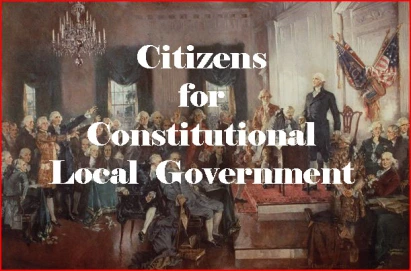On Feb. 11, 2009 my attempt to intervene in the Arizona Meritt superior court appeal of an DBFLS petition was denied. The Meritt complaint was based solely on the superior court decision in Waugaman, as no argument occurred in the Meritt default decision. I was required to file an Answer in defense of the statute to the HOA complaint that sought a declaration of unconstitutional adjudication of HOA disputes by DFBLS.
This denial was a surprising event given that Meritt was a default decision on a question of the constitutionality of a statute, and I had introduced the Attorney General’s brief in support of constitutionality from Waugaman in my Answer. In Waugaman, the AG’s brief was given a single line in the decision, a decision that quoted the HOA’s argument: “the Attorney General’s office fails to identify a single way in which the [Department] actually exerts regulatory authority over planned communities.” The focus was solely on whether or not the AG’s brief satisfactorily addressed the one issue of concern to the court, and to the HOA: the extent of regulatory authority. (For a clarification of the roles played by these cases, see my earlier comments on the Gelb petition at Will AZ Supreme Court do justice for 1 million HOA members? )
Filing as a Pro Per, this knowledgeable layman argued, among other things,
Here [HOA adjudication] there is a direct statutory adjudication authority and there is no need to divine legislative intent and tie it to an agency’s regulatory mission. The decision regarding constitutionality must therefore fall to the Bennett or four-fold test used in both Hancock and Cactus Wren. There is nothing in the Bennett test that considers proper regulatory authority per se. The requirement for adjudication as ancillary to proper regulatory authority is not a requirement of the Bennett four-fold test . . . . (¶ 10, p. 5).
In view of the facts in Hancock contained in paragraph 10, this fixation on regulatory authority is misplaced in view of the direct statutory authority to adjudicate contractual disputes in both the Act and planned communities. (¶ 11, p. 7).
This essential argument finding error with the Waugaman decision’s focus on the extent of regulatory authority (used as sole authority in Meritt, and essentially repeated in the Gelb appeal) is more elegantly presented in part 3 of the Nov. 30, 2010 Gelb Petition, “III. A.R.S. § 41-2198 is a Constitutional Delegation of Authority to An Administrative Agency and Does Not Violate the Separation of Powers Doctrine.” (p. 11). Gelb argued,
The Court of Appeals incorrectly determined § 41-2198(3) violated Article 3 of the Arizona Constitution because there was “no nexus between the regulatory authority or purpose of the DFBLS and the authority to regulate planned communities.” . . . Significantly, the word “nexus” does not appear in either decision. Nor does either case require “a nexus between the primary regulatory purpose of the [agency] and the adjudicatory authority granted in the Administrative Process” as stated in the Court of Appeals opinion.
Furthermore, in undertaking this analysis of the constitutional delegation of powers to an agency, the Gelb appellate court stated, “In applying these factors, we are mindful that duly enacted laws are entitled to a strong presumption of constitutionality and any doubts should be resolved in favor of upholding a statute against constitutional challenges.” Additional Petition arguments cited authority in support of a blending of functions, and agency adjudication as assisting the judiciary rather than usurping its powers as held in the Gelb opinion. These arguments attacked the court’s conclusion that the HOA had overcome “this strong presumption of constitutionality” of a statute.
Let us hope that the Arizona Supreme Court will hear this Petition and do justice on behalf of the people, an estimated 1 million plus Arizonans living in HOAs and condos.

In each of the related cases, Waugaman, Meritt and Gelb, the three different HOAs were represented by the law firm of Carpenter Hazlewood Delgado and Wood. All are members of the national lobbying trade group, Community Associations Institute (CAI)that has a legislative lobbying committee in every state. At most, CAI has less than 10% membership from all HOAs/condos across the country. Yet, HOAs per se are not allowed to be a member of CAI.
The attorney of record in each of these three cases is Jason E. Smith, also a CAI member.